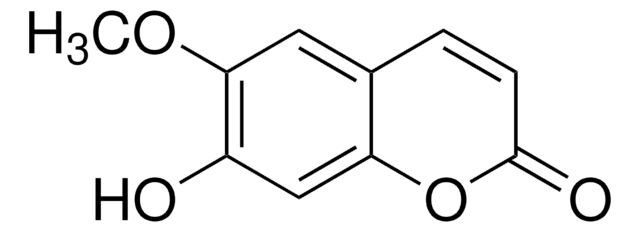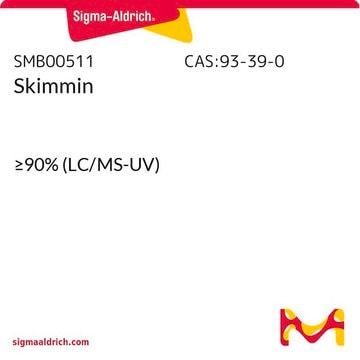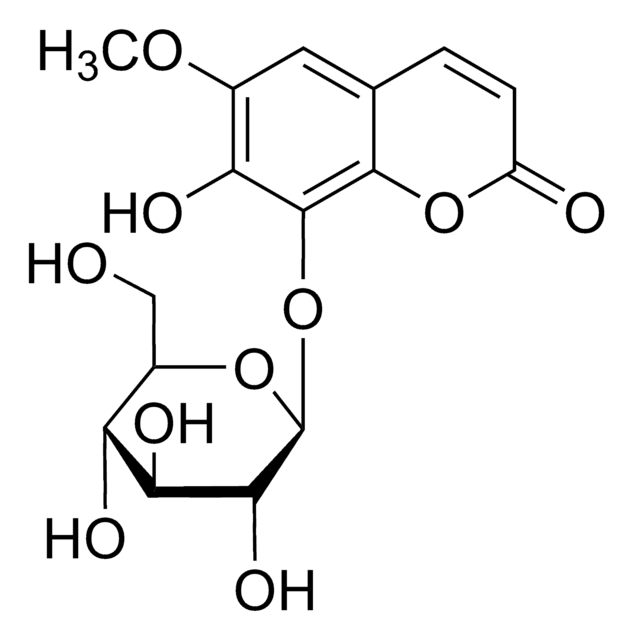PHL82649
Scopolin
phyproof® Reference Substance
Synonym(s):
7-Hydroxy 6-methoxycoumarin 7-glucoside, Scopoletin 7-glucoside, Scopoloside
About This Item
Recommended Products
grade
primary reference standard
product line
phyproof® Reference Substance
Assay
≥95.0% (HPLC)
manufacturer/tradename
PhytoLab
application(s)
food and beverages
format
neat
InChI
1S/C16H20O9/c1-22-9-4-7-2-3-12(18)23-8(7)5-10(9)24-16-15(21)14(20)13(19)11(6-17)25-16/h4-5,11,13-17,19-21H,2-3,6H2,1H3/t11-,13-,14+,15-,16-/m1/s1
InChI key
WSHSQJSPOLYHLM-YMILTQATSA-N
General description
Other Notes
Legal Information
Storage Class Code
11 - Combustible Solids
WGK
WGK 3
Flash Point(F)
Not applicable
Flash Point(C)
Not applicable
Choose from one of the most recent versions:
Certificates of Analysis (COA)
Don't see the Right Version?
If you require a particular version, you can look up a specific certificate by the Lot or Batch number.
Already Own This Product?
Find documentation for the products that you have recently purchased in the Document Library.
Our team of scientists has experience in all areas of research including Life Science, Material Science, Chemical Synthesis, Chromatography, Analytical and many others.
Contact Technical Service





